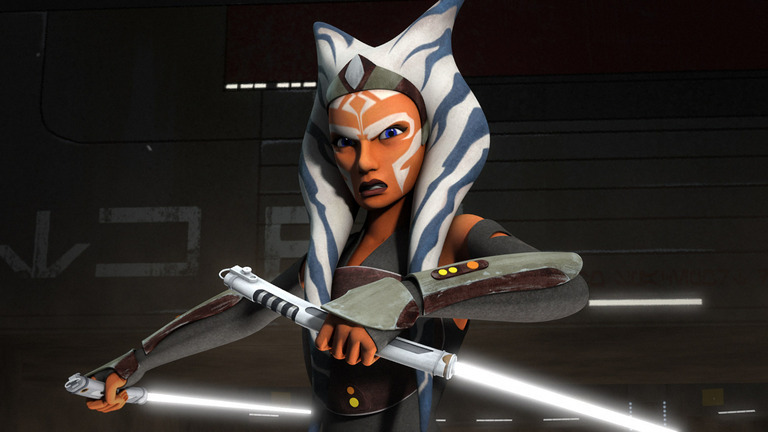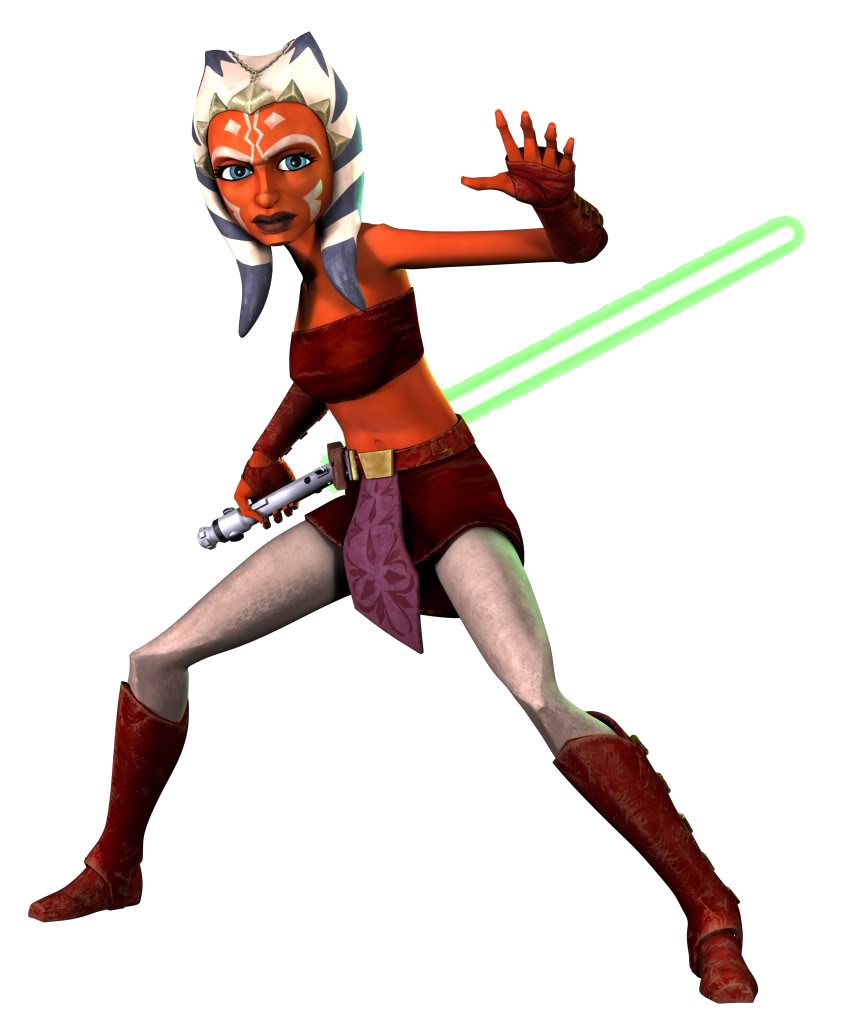Representation Matters - Ashoka Edition

Sometimes it's the little things that highlight Hollywood's gender gap.
This week, even more than usual, I am conscious of the fact that representation in popular media is the least of our problems. But it nevertheless has an impact on our children, and so I write this for my kids.
“Mom, I want to be Ashoka Tano for Halloween.”
It really wasn't a surprise. We've been watching Clone Wars recently, and my daughter adores Ashoka. It's easy to see why. Apart from Rey, she's the only female Jedi main character. Ashoka is brave, clever, tough, resourceful and likable. She's featured in many episodes and given several story arcs of her own. She's a perfect hero to dress up as for Halloween.
My son, infatuated with the clone troopers, had a veritable army of clone costumes to choose from: Rex, Cody, Fox, a green trooper, a blue trooper, a white trooper - even an ARF trooper (whatever the heck that is). And that's not even counting all the Obi-Wan and Anakin costumes.
For my daughter? The only commercial costume available is the "tube top" version of Ahsoka. It's more modest (being a kids costume) but it's still clearly the "early Ashoka" design:

"But I don't like that one. That's the bikini outfit. Why don't they have any of her other clothes?"
Remembering that for most of my life, Star Wars costume options consisted solely of "white smock and cinnamon bun hair" or a slave girl outfit, I understood completely.
"Do you want to watch the next episode of Clone Wars?"
"No. I don't like it any more."
After watching it non-stop for weeks, the abrupt 180 threw me for a loop. Had I missed something? Was there something too scary in one of them? What was going on?
Then it hit me.
"It's because they got rid of Ashoka, isn't it?"
She answered with a sad nod.
Remembering when they wrote Amy out of A-Team, or Caitlin out of Airwolf, or Sindy out of CHiPS, or other times where they'd gotten rid of the sole female main character of the show, I understood completely.
A lot has been written recently about the importance of on-screen representation in media. Here are a few of the myriad of reasons why representation matters:
"When a girl sees herself as a scientist, or a boy sees someone with his skin color as a law student, it plants a seed that this is possible." Eva Longoria
"For so many people, television and movies may be the only way they understand people who aren’t like them." Michelle Obama
"Instead of limiting the image of the hero to only a percentage of the population, superhero films have the power to show that the American conception of a hero is not limited to a specific race, gender, or sexuality." Juliana Alcoin, Harvard Political Review
"Studies from many fields have shown that it’s important for children to see characters who not only look like themselves and their families, but also sound like them." Dubrow, Gidney and Burton, Tufts University
Geek genre dominates pop culture. From Game of Thrones, to Star Wars, to the various comic book universes - action and sci-fi make up an overwhelming percentage of top-grossing films and TV series. Yet women and other minorities continue to be woefully underrepresented in those genres.
Everybody deserves heroes they can relate to.
"When will it be fair?"
I didn't have an answer for my daughter's earnest question. But I do know this:
The more buzz we create; the more tickets we buy - it all sends a message to Hollywood that we value these characters and these stories and we want to see more.
Even if sometimes that means just griping about a lack of Halloween costume choices.
Timeless: Full Circle
Mile 22 Review